- Latest articles

If I hadn’t gone through that darkness, I wouldn’t be where I am today.
My parents really wanted to have a family, but my mom wasn’t able to get pregnant until she was 40. I was their miracle baby, born on her birthday, exactly one year after she completed a special Novena in petition for a child. I was gifted with a baby brother one year later.
My family was nominally Catholic; we would go to Sunday Mass and receive the Sacraments, but there was nothing more. When I was about 11 or 12, my parents turned away from the Church and my faith life took an incredibly long pause.
Writhing Agony
Teenage years were packed with pressure, a lot of which I put on myself. I’d compare myself to other girls; I wasn’t happy with my appearance. I was highly self-conscious and anxious. Though I excelled academically, I had a difficult time in school because I was very ambitious. I wanted to get ahead—show people that I could be successful and intelligent. We didn’t have much money as a family, so I figured that studying well and getting a good job was going to solve it all.
Instead, I got sadder and sadder. I would go for sports and celebrations, but I would wake up the next day and feel all empty. I had a few good friends, but they too had their own struggles. I remember trying to support them and ending up questioning the why of all the suffering around me. I was lost, and this sadness made me close-up and curl into myself.
When I was about 15, I fell into the habit of self-harm; as I later realized, at that age, I didn’t have the maturity or the ability to speak about what I was feeling. As pressure intensified, I gave in to suicidal thoughts, multiple times. During one hospitalization incident, one of the doctors saw me in such agony and said: “Do you believe in God? Do you believe in something after death?” I thought it was the strangest question to ask, but that night, I remembered reflecting on it. That’s when I cried out to God for help: “God, if you exist, please help me. I want to live—I’d like to spend my life doing good, but I’m not even capable of loving myself. Whatever I do, everything ends in burnout if I don’t have a meaning for all of it.”
A Hand of Help
I started to talk to Mother Mary, hoping that maybe she could understand and help me. Shortly after, my mother’s friend invited me to go on a pilgrimage to Međugorje. I didn’t really want to, but I accepted the invitation, more for curiosity to see a new country and nice weather.
Surrounded by people who were praying the Rosary, fasting, walking up mountains, and going to Mass, I felt out of place but at the same time, I was also slightly intrigued. It was the time of the Catholic Youth Festival, and there were around 60,000 young people there, attending Mass and Adoration, praying the Rosary every day; not because they were forced to, but joyfully, from pure desire. I wondered if these people had perfect families which made it really easy for them to believe, clap, dance, and all of that. Truth be told, I craved that joy!
While we were on the pilgrimage, we listened to the testimonies of girls and boys in a Cenacolo Community nearby, and that really changed things for me. In 1983, an Italian nun founded the Cenacolo Community to help young people whose lives had taken a wrong turn. Now, the organization can be found in many countries worldwide.
I listened to the story of a girl from Scotland who had drug problems; she had also attempted to take her own life. I thought to myself: “If she can live that happily, if she can come out of all that pain and suffering and genuinely believe in God, maybe there’s something in that for me as well.”
Another great grace that I received when I was in Međugorje was that I went for confession for the first time in many years. I did not know what to expect but going to confession and finally saying out loud to God all of the things that had hurt me, all that I had done to hurt others and myself, was an enormous weight off my shoulders. I just felt peace, and I felt clean enough to make a fresh start. I came back touched and started University in Ireland, but sans adequate support, I ended up in the hospital again.
Finding Way
Realizing that I needed help, I went back to Italy and became a part of a Cenacolo Community. It wasn’t easy. Everything was new—the language, prayer, different personalities, cultures—but there was a truth in it. Nobody was trying to convince me of anything; everyone was living their life in prayer, work, and true friendship, and it was healing them. They were living peace and joy, and it wasn’t made up but real. I was with them all day, every day—I saw it. I wanted that!
What really helped me those days was Adoration. I don’t know how many times I just cried in front of the Blessed Sacrament. A therapist wasn’t speaking back to me, no one was trying to give me any medication, it just felt like I was being cleansed. Even in the community, there was nothing particularly special, except for God.
Another thing that really helped me get out of my depression was that I started looking to serve others. As long as I kept looking at my own self, my own wounds and problems, I was just digging myself into a bigger hole. The community life forced me to come out of myself, look to others, and try to give them hope, the hope that I was finding in Christ. It helped me so much when other young people would come to the community, young girls who had problems similar to mine or sometimes even worse. I looked after them, tried to be an older sister, and sometimes even a mother.
I started to think about what my mother would have experienced with me when I was hurting myself or when I was unhappy. There’s often a certain sense of helplessness, but with faith, even when you can’t help someone with your words, you can do so on your knees. I’ve seen the change in so many girls and in my own life from prayer. It’s not something mystical or something I could explain theologically, but faithfulness to the Rosary, Prayer, and Sacraments has changed my life and so many other lives, and it has given us a new will to live.
Passing it on
I returned to Ireland to pursue a career in nursing; in fact, more than a career, I felt deeply that it’s how I wanted to spend my life. I’m now living with young people, some of whom are like me when I was their age—struggling with self-harm, depression, anxiety, substance abuse, or impurity. I feel that it’s important to tell them what God did in my life, so sometimes during lunch, I tell them that I wouldn’t really be able to do this job, see all the suffering and pain if I didn’t believe that there was something more to life than just death after illness. People often tell me: “Oh, your name is Joy, it suits you so much; you’re so happy and smiley.” I laugh inside: “If you only knew where that came from!”
My joy is one that arose from suffering; that’s why it’s a true joy. It lasts even when there’s pain. And I want the young people to have the same joy because it’s not just mine, but it’s a joy that comes from God, so everyone can also experience it. I just want to be able to share this infinite joy of God so that others can know that you can go through pain, misery, and difficulties and still come out of it, grateful and joyful to our Father.
'
Q – How do I know if my love for sports is idolatry? I practice four hours a day, hoping to get a college scholarship, and I think about it all the time, following the professional teams closely. I love God, but He just doesn’t hold my interest like sports do. When does my passion cross the line into idolatry?
A – I, too, am passionate about sports. I played baseball in high school and college, and even as a priest, I continue to play Ultimate Frisbee, soccer, and American football. Sports can be “the field of virtue,” as Saint John Paul II once said. But in our modern world, we do often hold sports in very high esteem…perhaps too high.
My college baseball coach had a great saying: “Nothing in sports is eternal.” That helped me keep everything in perspective. Winning the championship or losing the game won’t make a bit of difference in eternity. It is meant to be fun, giving us a chance to exercise and practice teamwork, discipline, courage, and fairness—but there are no eternal consequences to an athletic contest.
So how do we keep sports in its proper perspective? We look at three things to know if sports (or anything else) has become an idol:
First, time. How much time do we spend on it versus how much time do we spend with the Lord? I once challenged a class of teens to spend ten minutes per day in prayer, and one boy told me that was impossible because he played video games. I asked him how much he played, and he told me that he often played eight to eleven hours per day! If a person doesn’t have time for a serious prayer life—fifteen to twenty minutes minimum, every day, because they are spending that time on sports, then it is indeed idolatry. This doesn’t mean that it has to be perfectly equal—if you practice for two hours per day, you don’t necessarily need to pray for two hours per day. But there does need to be enough time in your life to have a solid prayer life.
This includes making sure that our sports life does not conflict with Sunday worship. My brother, an excellent ballplayer, once had to miss an important tryout because it was being held on Easter Sunday morning. Whatever we do instead of Sunday Mass becomes our idol!
This also includes making time an integral part of our sacrifice for the Lord. Do you have the time to volunteer at your church or a local charity? Do you have enough time to perform your daily duties well (to do your studies to the best of your ability, to do household chores, and to be a good son/daughter and friend)? If sports take up so much time that there is no time to give back to others, then we are out-of-balance.
Second, money. How much money do we spend on sports games, equipment, trainers, gym memberships—versus how much money do we give to the church, charities, or the poor? Where we spend our money determines what our priorities are. Again, this isn’t necessarily a perfectly equal ratio—but generosity is a major part of belonging to the Lord, from Whom all good gifts come.
Finally, enthusiasm. In America, where I live, American football is our national religion. It amazes me to see grown men sit outside in sub-freezing temperatures at a Green Bay Packers game, with their shirts off and their chests painted team colors, wearing a foam hat in the shape of cheese (it’s a weird tradition!), cheering at the top of their lungs…and many of these same men would be bored in church on Sunday morning, barely mumbling the Mass responses (if they attended at all).
What makes you excited? Are you more excited for a sports contest that won’t be remembered in a year or for the challenge and joy of the epic quest for holiness, the chance to advance the Kingdom of God, the battle for souls which has eternal consequences, the pursuit of an eternal victory which will make your trophies pale in comparison?
If you find that your enthusiasm for sports is still stronger, consider what Christianity truly is. There is literally nothing more exciting and adventurous on earth than the quest to become a saint. It involves many of the same qualities as a good athlete: self-denial, dedication, and single-minded pursuit of a goal. But our goal has eternal reverberations!
Considering these three things—where you spend your time, how you spend your money, and what makes you excited. These can provide valuable insight as to when something has become an idol to us.
'
I lost my iPhone a year ago. At first, it felt like a limb was amputated. I had owned one for thirteen years, and it was like an extension of myself. In the beginning days, I used the “new iPhone” like a phone, but it soon became an alarm clock, a calculator, the news, weather, banking, and much more…and then…it was gone.
As I was forced into detox, I had many pressing problems. My shopping lists now needed to be written on paper. An alarm clock was purchased, and a calculator. I missed the daily ‘ping’ of messages and the scramble to open them (and the feeling of being wanted).
But I was sensing the peace of not having this little piece of metal dominating my life.
I hadn’t realized how demanding and controlling the device was until it was gone. The world didn’t stop. I just had to relearn new-old ways of interacting with the world, like talking to people face to face and making plans for events. I wasn’t in a hurry to replace it. In fact, its demise led to a welcome revolution in my life.
I started experimenting with minimal media in my life. No newspapers, magazines, radio, television, or phone. I kept an iPad for work emails, selected YouTube videos on the weekend, and a few independent news pages. It was an experiment but one that has left me feeling calm and peaceful, enabling me to use my time for prayer and Scripture.
I could now cling to God more easily, who is “the same, yesterday, and today and forever” (Hebrews 13:8). The First Commandment asks us to “love the Lord your God with all Your heart and mind and soul and love your neighbor as yourself” (Mark 12:30-31). I wonder how we can do that when our mind is on our phones for most of the day!
Do we truly love God with our minds? Romans 12:2 says: “Do not conform to the pattern of this world but be transformed by the renewing of your mind.”
I challenge you to abstain from the media, even for a little while and even for a little bit. Feel that transforming difference in your life. Only when we give ourselves a break will we be able to love the Lord our God with renewed minds.
'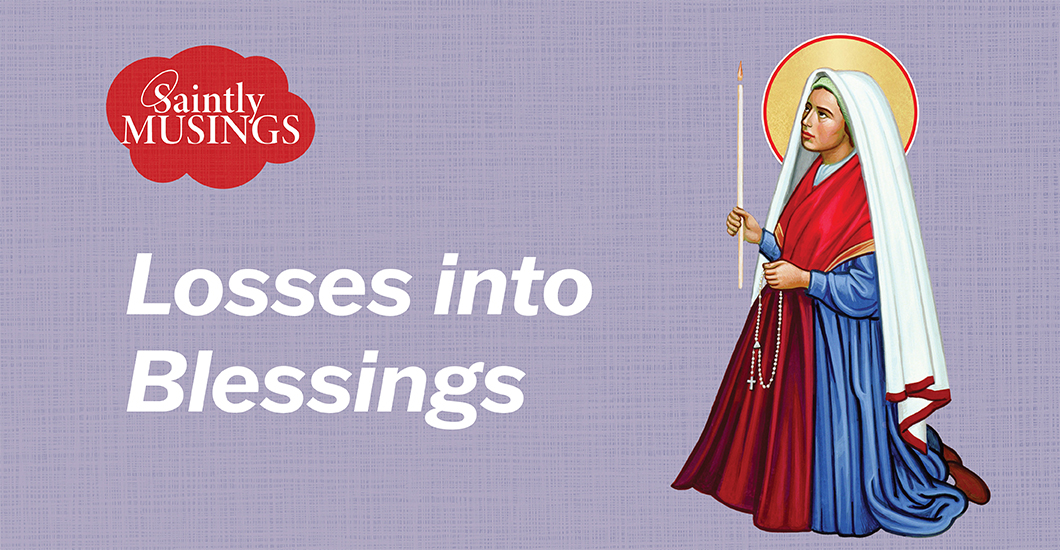
Life is full of unexpected turns. Nearly six years after the death of her mother, Bernadette had to suffer the loss of her father too. Since leaving Lourdes to join the religious order, she never had a chance to see him.
When assailed by this sudden demise, this is how Bernadette found strength—A sister found her crying in front of a statue of the Virgin Mary, and when the sister tried to console her, she said: “My sister, always have great devotion to the agony of our Savior. Last Saturday in the afternoon, I prayed to Jesus in agony for all those who would die in that moment, and it was precisely the very moment my father entered eternity. What a consolation it is for me to have helped him.”
For Bernadette, the Saint who, as a little girl, had the apparition of Mary at Lourdes, life was not without troubles. She had to go through many tribulations; big and small humiliations bombarded her. She often said: “When my emotions are too strong, I remember the words of Our Lord: ‘It is I, don’t be afraid.’ I immediately appreciate and thank Our Lord for this grace of rejection and humiliation from those in authority. It is the love of this Good Master who would remove the roots from this tree of pride. The more little I become, the more I grow in the Heart of Jesus.”
'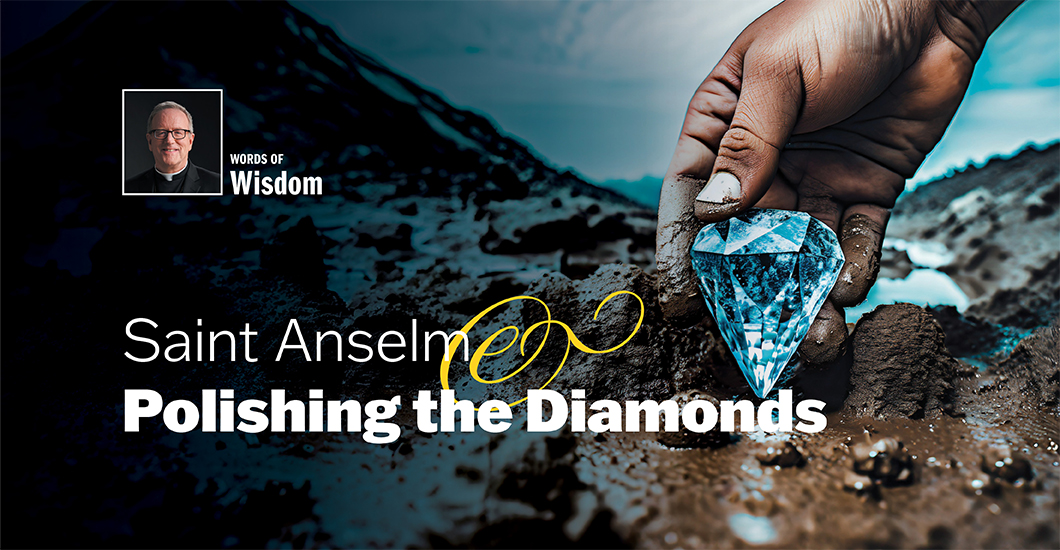
There is a regrettable interpretation of the Cross that has, unfortunately, infected the minds of many Christians. This is the view that the bloody sacrifice of the Son on the cross was “satisfying” to the Father, an appeasement of a God infinitely angry at sinful humanity. In this reading, the crucified Jesus is like a child hurled into the fiery mouth of a pagan divinity in order to assuage its wrath.
But what ultimately refutes this twisted theology is the well-known passage from John’s Gospel: “God so loved the world, that he sent his only Son, that all who believe in him might have eternal life.”(3:16) John reveals that it is not out of anger or vengeance or in a desire for retribution that the Father sends the Son, but precisely out of love. God the Father is not some pathetic divinity whose bruised personal honor needs to be restored; rather, God is a parent who burns with compassion for His children who have wandered into danger.
Does the Father hate sinners? No, but he hates sin. Does God harbor indignation at the unjust? No, but God despises injustice. Thus, God sends his Son, not gleefully to see him suffer, but compassionately to set things right.
Saint Anselm, the great medieval theologian who is often unfairly blamed for the cruel theology of satisfaction, was eminently clear on this score. We sinners are like diamonds that have fallen into the muck. Made in the image of God, we have soiled ourselves through violence and hatred. God, claimed Anselm, could have simply pronounced a word of forgiveness from heaven, but this would not have solved the problem. It would not have restored the diamonds to their original brilliance. Instead, in his passion to reestablish the beauty of creation, God came down into the muck of sin and death, brought the diamonds up, and then polished them off.
In so doing, of course, God had to get dirty. This sinking into the dirt—this divine solidarity with the lost—is the “sacrifice” which the Son makes to the infinite pleasure of the Father. It is the sacrifice expressive, not of anger or vengeance, but of compassion.
Jesus said that any disciple of His must be willing to take up his cross and follow the Master. If God is self-forgetting love even to the point of death, then we must be such love. If God is willing to break open his own heart, then we must be willing to break open our hearts for others. The cross, in short, must become the very structure of the Christian life.
'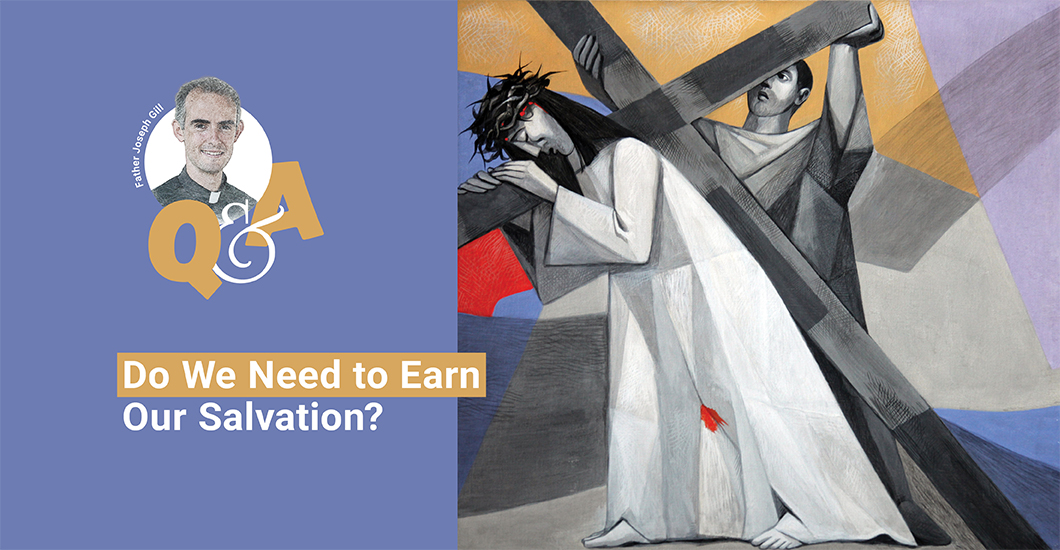
Q: My Protestant friends say that Catholics believe we need to earn our salvation. They say that salvation is by faith alone and that we can’t add to anything that Jesus already did for us on the Cross. But don’t we have to do good works to make it to Heaven?
A: This is a pretty big misunderstanding for both Protestants and Catholics. It may seem to be theological minutiae, but it actually has a huge consequence in our spiritual life. The truth is this: We are saved by living faith—our belief in Jesus Christ that is lived out in our words and actions.
We must be clear—we do not need to earn our salvation, as if salvation was a prize if we reach a certain level of good deeds. Consider this: who was the first one to be saved? According to Jesus, it was the Good Thief. While he was being rightly crucified for his evil deeds, he cried out to Jesus for mercy, and the Lord promised him: “Truly I tell you, today you will be with me in Paradise.” (Luke 23:43) So, salvation consists in that radical faith, trust, and surrender to what Jesus did on the Cross to purchase mercy.
Why is this important? Because many Catholics think that all we have to do to be saved is ‘be a good person’—even if the person doesn’t actually have a living relationship with the Lord. I can’t begin to tell you how many people tell me something like: “Oh, my uncle never went to Mass or prayed, but he was a nice man who did many good things in his life, so I know he’s in Heaven.” While we certainly hope that the uncle is saved by God’s mercy, it isn’t our kindness or good works that save us, but the saving death of Jesus on the Cross.
What would happen if a criminal was put on trial for a crime, but he said to the judge, “Your Honor, I did commit the crime, but look at all the other good things I did in my life!” Would the judge let him off? No—he would still have to pay for the crime he committed. Likewise, our sins had a cost—and Jesus Christ had to pay for them. This payment of the debt of sin is applied to our souls through faith.
But, faith is not just an intellectual exercise. It must be lived out. As Saint James writes: “Faith without works is dead” (2:24). It’s not enough just to say: “Well, I believe in Jesus, so I can now sin as much as I want.” On the contrary, precisely because we have been forgiven and become heirs to the Kingdom, we must then act like Kingdom-heirs, like sons and daughters of the King.
This is very different than trying to earn our salvation. We don’t do good works because we hope to be forgiven—we do good works because we are already forgiven. Our good deeds are a sign that His forgiveness is alive and active in our lives. After all, Jesus tells us: “If you love Me, you will keep My commandments.” (John 14:15) If a husband loves his wife, he will seek concrete ways to bless her—giving her flowers, doing the dishes, writing her a love note. He would never say: “Well, we’re married, and she knows I love her, so I can now do whatever I want.” Likewise, a soul that has known the merciful love of Jesus will naturally want to please Him.
So, to answer your question, Catholics and Protestants are actually much closer on this issue than they know! We both believe that we are saved by faith—by a living faith, which is expressed in a life of good works as a sign of thanksgiving for the lavish, free gift of salvation that Christ won for us on the Cross.
'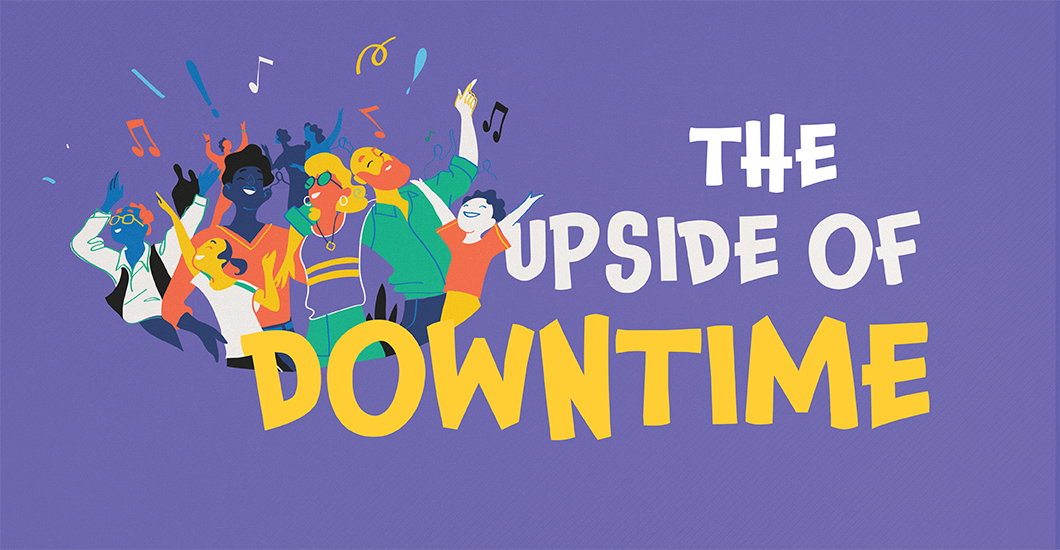
Lent is round the corner. Are you feeling reluctant to give up your favorites?
Growing up, I was one boisterous kid with a rather loud mouth and a deep love for music. One of my earliest memories was turning the radio on all by myself and hearing music magically come out of that little box. It was like a whole new world opened up for me!
My whole family loved music, and we were often singing, playing the piano, strumming the guitar, listening to classical music, or making up our own ditties. I remember thinking that life would be so much better if there was a sweet soundtrack playing in the background.
I passed on this love of music to my children. As a young family, we had songs for pretty much every occasion, including our prayer times. Now, all of us lead music in some shape or form, and I currently serve as a music minister for two parishes. Music is a source of great joy and life!
One day, however, it hit me square between the eyes that I was too attached to music.
That Lent, I gave up listening to music in the car. That was a doozy for me, for I always listened to music while driving. This habit was particularly hard to break. It was like an automatic knee-jerk reaction. Every time I got into my car, my hand flew up to pop in a CD.
But I persisted and eventually trained my hand not to touch any buttons but to make the sign of the cross instead. Then, I replaced listening to music with prayer, with praying the rosary specifically. That was seven years ago, and I have not looked back. I have grown to greatly appreciate this downtime with God.
Downtime with the Lord gives us the space we all desperately need to disconnect from exterior things and connect to our interior life. It helps us regain peace. It helps us lean in and better listen to God. Recall how Saint John the Evangelist rested up against Jesus’ chest at the Last Supper. Now, imagine yourself leaning in so close that you could feel Jesus’ heartbeat.
God wants us to lean in. To create a space in our daily lives where we rest our heads upon His Sacred Heart and learn from Him or simply rest our weary souls.
Being a lover of music, I used to always have a tune running through my mind, and oftentimes, this was a real distraction. Now, if I have a tune in my mind, I stop and ask God if He is communicating something to me through it. This morning, for instance, I woke up to a tune I hadn’t heard in ages, “I will sing of the mercies of the Lord forever; I will sing, I will sing.”
Music is the language of the heart. I believe God delights in our sung praises to Him and that He often is singing over us. So, I still sing! However, I feel particularly blessed when singing leads to a place of silence, or what I like to call ‘pregnant silence,’ a place of profound intimacy with the Lord. I especially appreciate this quiet space right after receiving Holy Communion.
In our busy lives, creating downtime with the Lord is often a battle. Praying the rosary helps me tremendously with this battle, which makes sense since our Blessed Mother is a champion of contemplation. “Mary kept all these things, reflecting on them in her heart.” (Luke 2:19)
Jesus Himself modeled for us the importance of entering into silence, as He often withdrew to a quiet spot to be alone with His Heavenly Father.
One day this past summer, while on a crowded beach during a family reunion, I found myself under-rosaried and edgy. I was craving quiet time with the Lord. My daughter recognized I was not myself and casually mentioned it. I decided to venture out into the lake alone for an hour and discovered that if I went underwater, I would find my quiet zone. I prayed a rosary while swimming that afternoon and regained my peace.
“The more we pray, the more we wish to pray. Like a fish which at first swims on the surface of the water, and afterward plunges down, and is always going deeper, the soul plunges, dives, and loses itself in the sweetness of conversing with God.”—Saint John Vianney.
Holy Spirit, help us find the quiet time we so desperately need, so we can better hear Your Voice and simply rest in Your Embrace.
'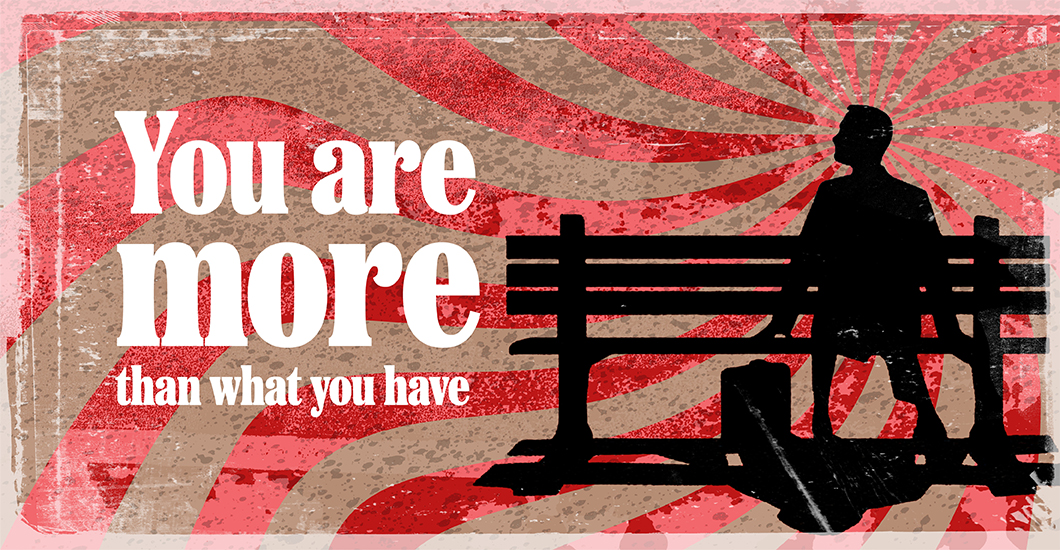
Super-wealthy, know-it-all, well-respected, powerful influencer…the list is endless, but all these don’t matter when it comes to the question of who you are.
During the early ’60s, the folk-rock group The Byrds had a mega-hit called Turn! Turn! Turn! which was adapted from the third chapter of Ecclesiastes. I found the song riveting. It encouraged me to read the entire Book, which I found to be very strange. It was strange because, unlike the lyrics to the song, I found the rest, especially the first chapter, to be a ‘Debbie Downer,’ an unrelenting treatment of the human condition.
The author, Qoheleth, is a self-described old man who has seen it all, done it all, and experienced it all. He has enjoyed everything life has to offer—he is super-wealthy, has accumulated knowledge, is well respected by his peers, has the power to navigate through life, and basically has enjoyed every creature comfort that can come his way. But, given all of that, he has come to the conclusion that it doesn’t matter.
Why not? I think he realized deep down that who you are is far more important than what you have.The reason is relatively straightforward—the goods of the world will always pass and fade away because they are ephemeral, transitory, and finite.
Before You are Whisked Away
Who we are is a matter of our moral and spiritual character, a matter of the soul. In the opening chapters of Genesis, it is revealed to us that we are made in the image and likeness of God, which constitutes us to participate in God’s very Being and Eternal Life. Put simply, we are who we are in relationship to God, not in what we have. We are, to the very core, spiritual and religious beings.
In the Gospel parable of the rich fool, Jesus makes a similar point but goes much further. Jesus effectively mocks the man who gives his allegiance to his wealth and security, in the false assumption that they will bring him joy. The man is not only wealthy, but his wealth is going to expand dramatically because he has had a good harvest. So, what does he do? He resolves to tear down his old barns and build bigger ones to store his added riches. The man has built his life on several considerations: (1) the goods of the world are valuable; (2) the many years, a lifestyle that it takes to realize his ambitions; (3) his wealth will promote a sense of tranquillity and unrestrained enjoyment. Given all of these considerations, nothing is lacking.
Au contraire, foolish rich young man! The Word that God addresses to him nullifies his plans: “You fool, this night your life will be demanded of you and the things that you have prepared, to whom will they belong?” (Luke 12:20) What Jesus is telling him is that God is not demanding his possessions, but his very life—who he is! And that demand is being made not in the distant future but right here, right now.
This night, your soul, your heart, your life will be required of you. “So,” Jesus says, “it is with those who store up treasures for themselves but are not rich toward God.” (Luke 12:21) Instead of the ‘enjoyment of life,’ i.e., the accumulation of the goods of the world, Jesus presents him with surrendering his life. “Seek His Kingdom, and these things will be given to you as well.” (Luke 12:31)
Ultimately Real
Dear reader, this is the linchpin—a primordial either-or choice: Is my gaze on God or is it on the goods of the world? If the former, then we will live out our true dignity of being human. We will love God with our whole heart and soul and our neighbor as ourselves because we are grounded in what is ultimately real. We will be in the right relationship with God, our neighbor, and all of creation.
Being attached to the goods of the world cannot possibly satisfy the desire of the heart because they cannot love us, which is the soul’s basic desire. Instead, this obsession and addiction causes more hunger and gives rise to a heightened sense of anxiety. Put bluntly, if we reject the sacred and transcendent in our lives, we will inevitably experience a dread of our very existence, a sense of emptiness and alienation from our fellow human beings, deep loneliness, and guilt.
It doesn’t have to end this way. Jesus invites us to take a realistic look at how wealth can enslave our hearts and distract us from where our true treasure lies, which is the Kingdom of God fulfilled in Heaven. Along this line, Saint Paul reminds us in his letter to the Colossians to “Set your minds on things that are above, not on things that are on earth.” (3:1-2)
It is, therefore, important for us to examine what we really love. Love that is lived according to the Gospel is the source of true happiness, whereas the exaggerated and unrequited search for material goods and wealth is often a source of restlessness, anxiety, abuse of others, manipulation, and domination.
The readings from Ecclesiastes, Luke’s Gospel, and Paul’s letter all point to the question: ‘Who am I?’ which matters infinitely more than what you have. What matters is that you are God’s beloved child, created to rest ultimately in God’s love.
'I was going through my old prayer journal, wherein I had written prayer requests. To my amazement, every single one of them was answered!
Anyone taking a cursory look at the news these days may find themselves despairing, wondering where God is, and needing hope. I know I have found myself in this position on certain days. We feel out of control, and we wonder what we can do about all of the horrible things we see. I want to share with you a story.
A few years ago, I started keeping a journal of prayer requests of the people and things I was praying for. I often prayed a Rosary for these things, as I still do today for prayer petitions. One day, I came across an old journal of my written prayer requests. I began to peruse the pages of what I had written long ago. I was astounded. Each prayer had been answered—maybe not always in ways I thought they would be answered, but they were answered. These were no small prayers. “Dear Lord, please help my aunt stop drinking alcohol. Dear Lord, please help my infertile friend have children. Dear Lord, please heal my friend from cancer.”
As I scrolled down the page, I realized that every single prayer had been answered. Many in a bigger and better way than I imagined. There were a couple that, at first glance, I thought had not been answered. One friend who needed healing from cancer had passed away, but then I remembered that she had confession and anointing of the sick before she died. She died peacefully in the mercy of God, surrounded by His healing grace. But other than that, the majority of the prayers were answered here in this world. Many prayer requests had seemed like impossible mountains, but they had been moved. God’s grace takes our prayers and our perseverance in prayer, and He moves all things toward good. In the quiet of my prayer, I heard a whisper: “I have been working all these things throughout time. I have been writing these stories. Trust me.”
I believe we are in perilous times. But I also believe that we are made for these times. You may say to me: “Your personal prayer requests being answered seems great, but nations are at war.” And my response to that is, again, nothing is impossible with God, not even stopping war by using our prayers. I remember it happening in the past. We should believe that God can act that big right now.
For those not old enough to remember, there was a scary time when it looked like a blood bath was coming. But through the power of the Rosary, things changed. I was in 8th grade, and I remember hearing about all the turmoil in the Philippines. Ferdinand Marcos was the dictator of that country at the time. It was shaping up to become a bloody battle with a few people already dead. A staunch critic of Marcos, Benigno Aquino, was assassinated. But it didn’t become a bloody battle. Cardinal Jaime Sin of Manila had asked people to pray. They went out in front of the military, praying the Rosary aloud. They stood in front of tanks praying. And then, a miraculous thing happened. The military laid down their weapons. Even the secular media, the Chicago Tribune, reported how “Guns fell to Rosaries.” The revolution was over, and the glory of God was seen.
Don’t stop believing in miracles. Expect them. And pray the Rosary every chance you get. Lord knows our world needs it.
'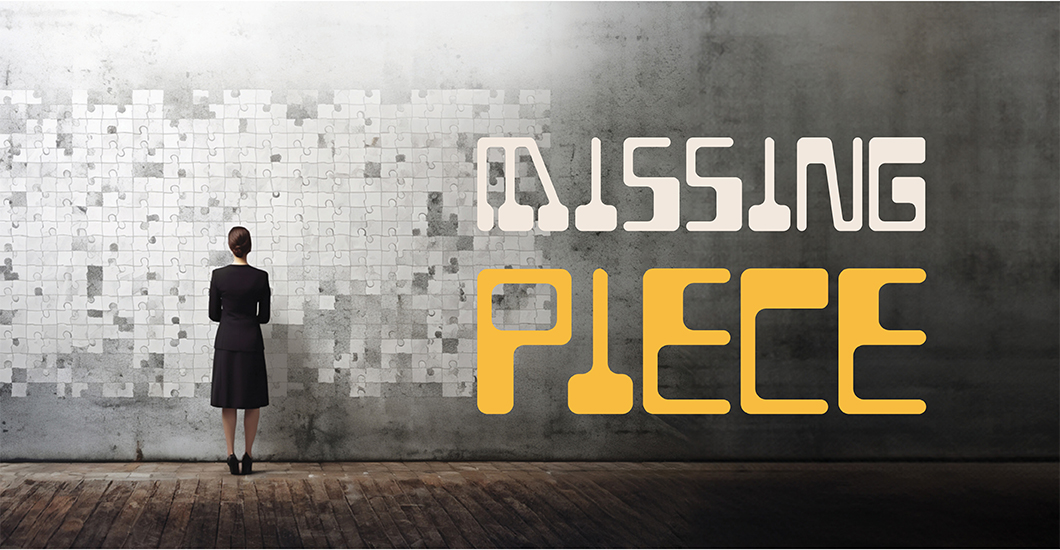
It takes courage to start a 1000-piece puzzle and finish it; so is it with life.
Last Christmas, I received a 1000-piece puzzle from my Kris Kringle at work featuring the Twelve Apostles of the famous Great Ocean Road (a spectacular group of rock formations in Southwestern Victoria, Australia).
I was not keen to start. I had done three of them with my daughter a few years ago, so I knew the hard work they entail. However, as I looked at the three completed puzzles hanging at home, in spite of the inertia I was feeling, I felt an inner drive to meditate on “the Twelve Apostles.”
On Shaky Ground
I wondered how the Apostles of Jesus felt when He died on the cross and left them. Early Christian sources, including the Gospels, state that the disciples were devastated, full of disbelief and fear that they went into hiding. They were not at their best at the end of Jesus’ life.
Somehow, this is how I felt as I started the year—fearful, uneasy, sad, broken-hearted, and uncertain. I had not fully recovered from the grief of losing my dad and a close friend. I must admit my faith was standing on shaky ground. It seemed as if my passion and energy for life had been overtaken by lethargy, lukewarmness, and a dark night of the soul, which threatened to (and sometimes succeeded in) overshadowing my joy, energy, and desire to serve the Lord. I could not shake it off despite great efforts.
But if we do not stop at that disappointing episode of the disciples fleeing their Master, we see at the end of the Gospels, these same men, ready to take on the world and even to die for Christ. What changed?
The Gospels record that the disciples were transformed on witnessing the Resurrected Christ. When they went to Bethany to witness His Ascension, spent time with Him, learned from Him, and received His blessings, it had a powerful effect. He did not only give them instruction but a purpose and a promise. They were not only to be messengers but witnesses as well. He promised to accompany them in their mission and gave them a Mighty Helper at that.
This is what I have been praying for lately—an encounter with the Resurrected Jesus once more so that my life will be divinely renovated.
Not Giving Up
As I started the puzzle, trying to put together this scenic marvel of the Twelve Apostles, I recognized that every piece was significant. Every person whom I will encounter in this New Year will contribute to my growth and color my life. They will come in different hues—some strong, others subtle, some in bright pigments, others grey, some in a magical combination of tints, while others dull or fierce, but everyone necessary to complete the picture.
Jigsaw puzzles take time to put together, and so does life. There is much patience to be asked for as we connect with one another. There is gratitude for when the link is done. And when the pieces don’t fit, there is hopefully a trusting encouragement to not give up. Sometimes, we may need to take a rest from it, come back, and try again. The puzzle, like life, is not covered by splashes of bright, happy colors all the time. The blacks, the greys, and the dark shades are needed to create a contrast.
It takes courage to start a puzzle, but more so to finish it. Patience, perseverance, time, commitment, focus, sacrifice, and devotion will be demanded. It is similar to when we start to follow Jesus. Like the Apostles, will we hold on till the very end? Will we be able to meet our Lord face to face and hear Him say: “Well done, good and faithful servant” (Matthew 25:23), or as Saint Paul says: “I have fought the good fight, I have finished the race, I have kept the faith.” (2 Timothy 4:7)?
This year, you might be asked too: Are you holding that piece of the puzzle that could make someone’s life better? Are you the missing piece?
'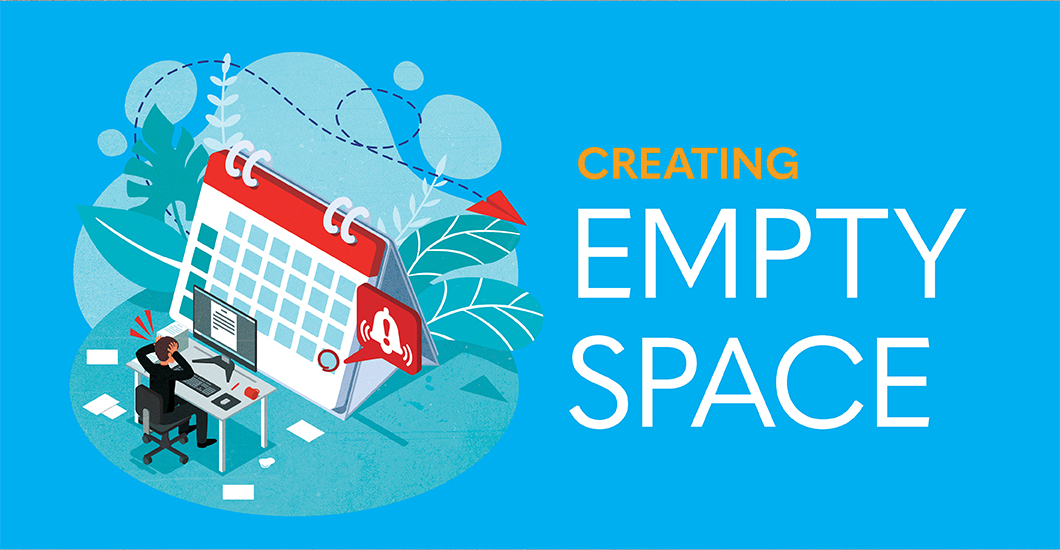
We always tend to fill in our calendars as much as possible but what if an unforeseen opportunity comes knocking?
The New Year gives the impression that we have a blank slate before us. The upcoming year is full of possibilities, and resolutions abound as we rush to fill up our freshly printed calendars. However, it happens that many of those exciting opportunities and elaborate goals for the perfect year fall flat. By the end of January, our smiles are faltering, and old habits from the previous years creep back into our lives.
What if we treated this year, this moment, a little differently? Instead of rushing to fill in all the white space on our calendars, why not give a little more room to blank space, to empty pockets of time where we don’t have anything scheduled? It is in these empty spaces we give the Holy Spirit the most room to work in our lives.
Anyone who has moved from one home to another knows the surprising amount of space an empty room creates. As the furniture moves out, the room seems to continue to grow. Without anything left, it’s always a shock to think that enough space was ever a problem, look how big it is! The more a room is filled with rugs, furniture, wall hangings, and other possessions, the more close the space can feel. Then, someone visits your house with a gift in hand, and you turn and wonder—now, where will we put this?
Our calendars can operate in much the same way. We fill each day with work, practice, games, commitments, prayer service—so many good and often seemingly necessary things. But what happens when the Holy Spirit comes knocking with an opportunity we didn’t foresee? Do we have space for Him on our calendar?
We can look to Mary as an ideal model for how to be open to the Holy Spirit. Mary hears the words of the angel and freely receives them. In offering her life to God, she demonstrates the perfect disposition for receiving God’s gifts. Another way to think about this is with what Bishop Barron has called the ‘Loop of Grace.’
God wishes to give to us with abundance. When we open ourselves to God’s loving generosity, we recognize that everything we have is a gift. With joy, we give back to God in thanksgiving, restarting the loop.
God reaches out to Mary, and she freely offers herself to His Will and purpose. She then receives Jesus. We see this again at the end of Jesus’ life. In utter sorrow and awful pain, Mary lets go of her precious Son. She doesn’t cling to Him as He hangs on the cross. In that painful moment, all seems lost, and her motherhood is emptied. She doesn’t flee, she remains with her Son, who has had to let her go. But then, Jesus gives her not just one son in John but sons and daughters for eternity in her motherhood of the Church. Because Mary remained open and receptive to God’s plan, even when it was the most painful, we now can call her , Our Mother.
As the year continues, perhaps take some time to pray over your schedule. Have you already filled up your days with more than enough, maybe even too much? Ask the Holy Spirit to inspire you to consider what activities are necessary for His purposes and which are more for your own personal desires and goals. Ask for the courage to reorder your schedule, for the wisdom to say “No” when needed, so you can joyfully and freely say “Yes!” when He comes knocking on your door.
'